Field Stories
In her words: Voices from girls around the world
October 5, 2023
Peer to Peer: Student governments in India support nutrition for adolescent girls
In this photo essay, learn how Nutrition International supported student councils in Madhya Pradesh to help adolescent girls take responsibility for their own health, nutrition and development.
Posted on February 8, 2023
In Madhya Pradesh, India, the Department of Education created over 800 Bal-Sabhas, or student cabinets, across the state. The student governments aim to instill the qualities of responsibility, sincerity and leadership in adolescent-aged schoolgirls. Each school’s Bal-Sabha is comprised of a Prime Minister, Minister of Education, Minister of Water Sanitation and Hygiene (WASH), Minister of Health, Minister of Sports, Minister of Environment, and Minister of Entertainment. Supported by faculty, the student ministers are responsible for their respective areas, which include health education and the distribution of weekly iron and folic acid supplementation (WIFAS) for anaemia reduction, along with other health interventions.
Follow along, in photos, as we introduce you to two middle school students at the helm of one Bal-Sabha in Bhopal. With the support of their teachers and Nutrition International, these inspiring young girls are helping their peers take responsibility for their own health and development.
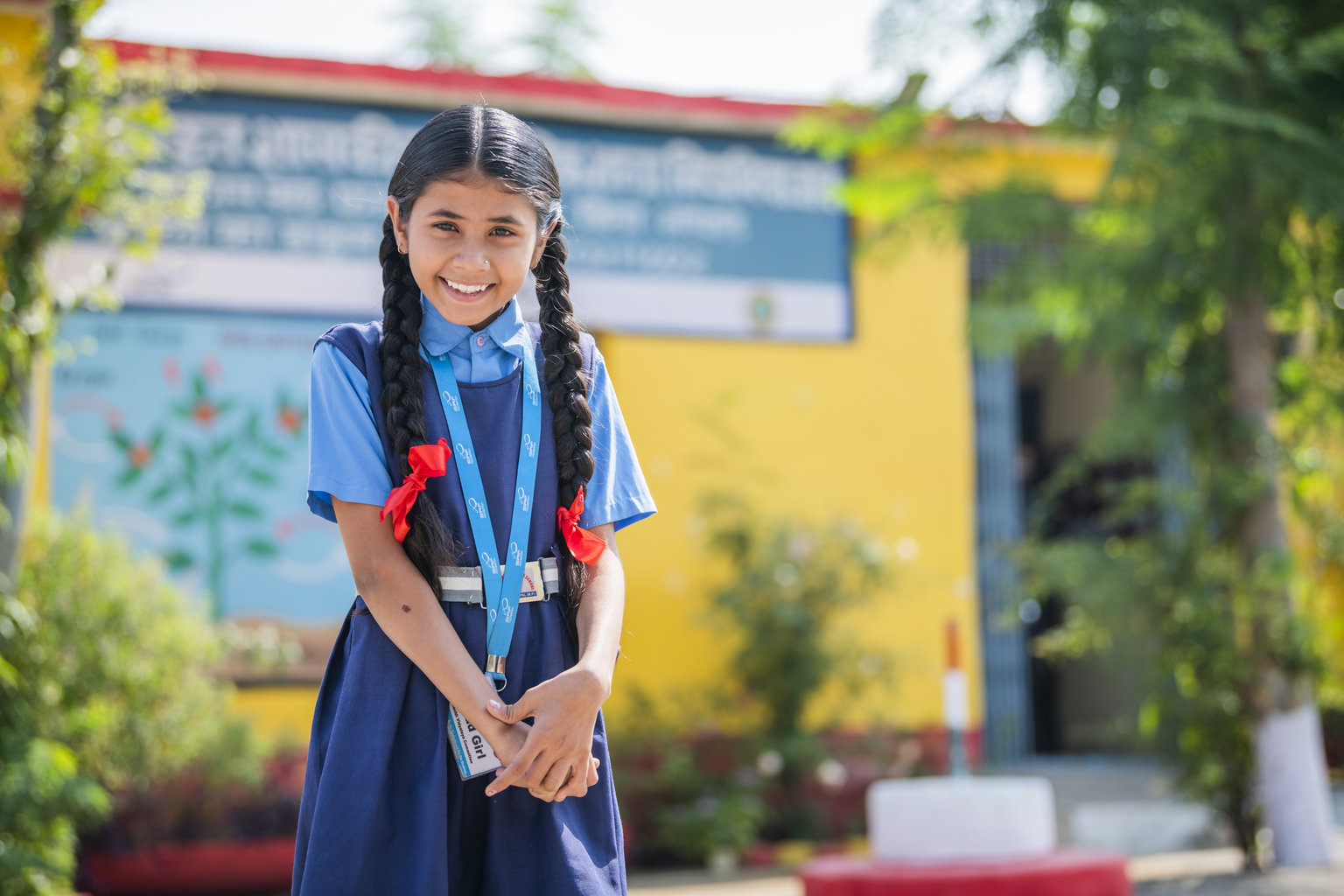
Meet Pratigya. She is twelve years old and the Prime Minister of her school’s Bal-Sabha. “I was inspired to join the cabinet after observing the seniors who had graduated from this school. As a member of the cabinet, I wished to contribute to the greater good,” said the seventh-grade student, who is responsible for supervising all other ministers, who report to her. “I cooperate with them,” she says.
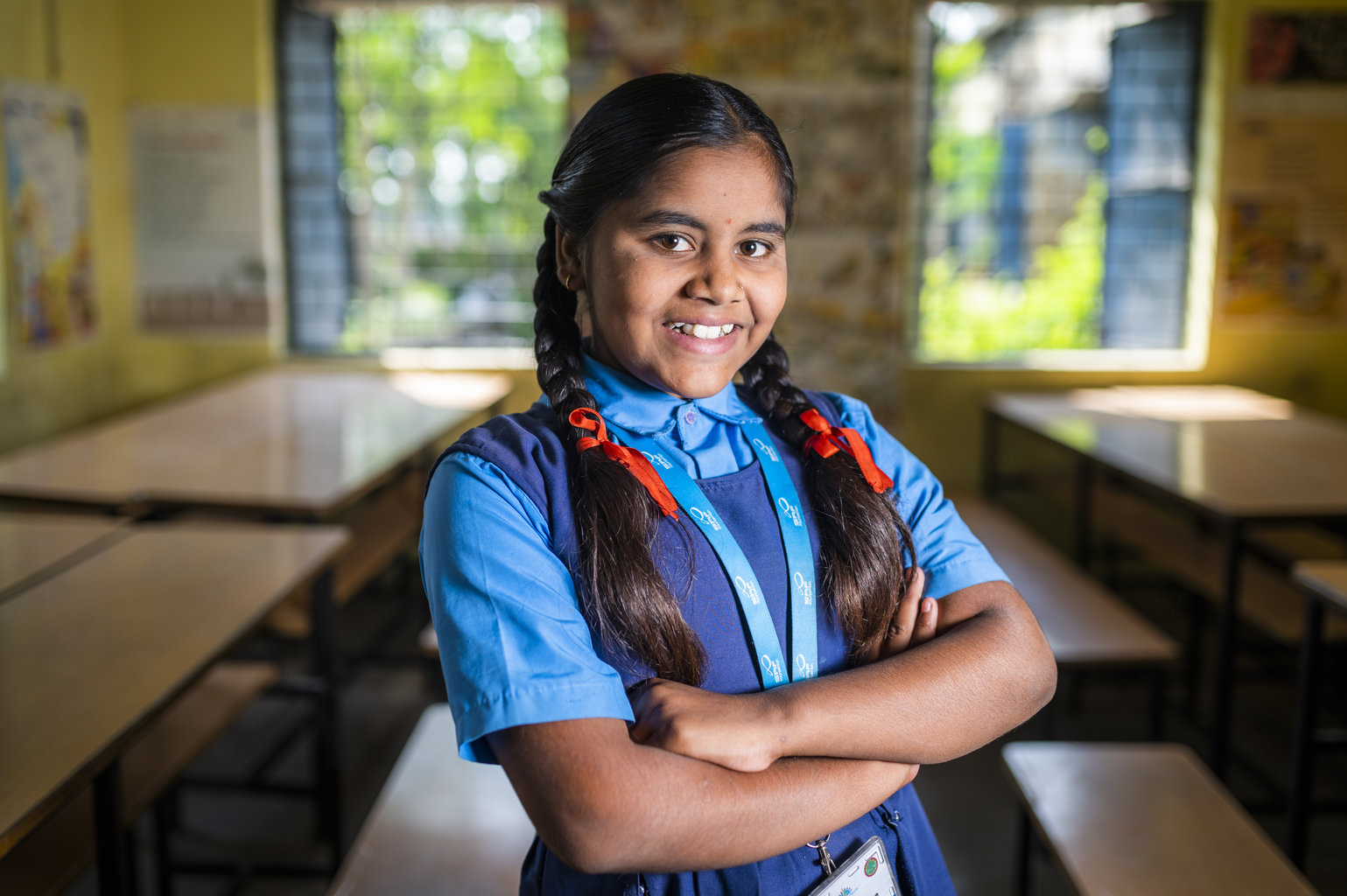
This is Ayushi, also twelve years old and in the seventh grade. Ayushi serves as the Health Minister in the school’s Bal-Sabha. When she found out she was named Minister of Health, Ayushi was overjoyed, and was really excited to tell her parents and neighbours, who were all very proud of her. Since becoming a member of the Bal-Sabha, Ayushi has gained a lot of self-confidence. “[Other students] previously knew me as Ayushi, but now they refer to me as the Health Minister. Before, I didn’t have an image at all, but now I do.”
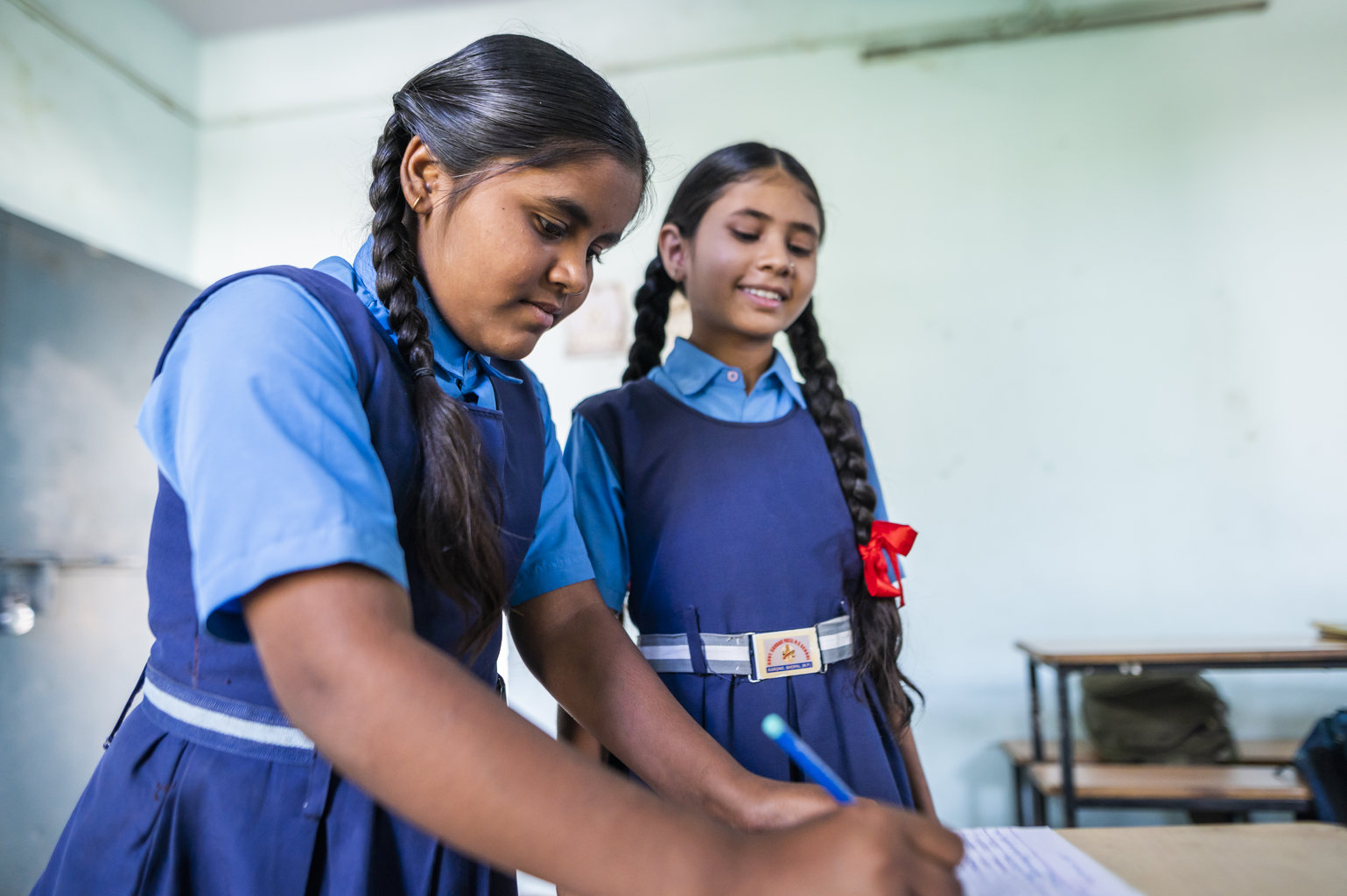
Every Tuesday, after lunch, Pratigya and Ayushi, along with their helpers and with the support of their teachers, distribute WIFAS tablet to their peers, educate them on it’s benefits and necessity, and keep a record of who has received the supplements that week. When consumed once weekly, WIFAS supplements lower the risk of anaemia, promote good health and improve potential school performance and capacity for physical activity.
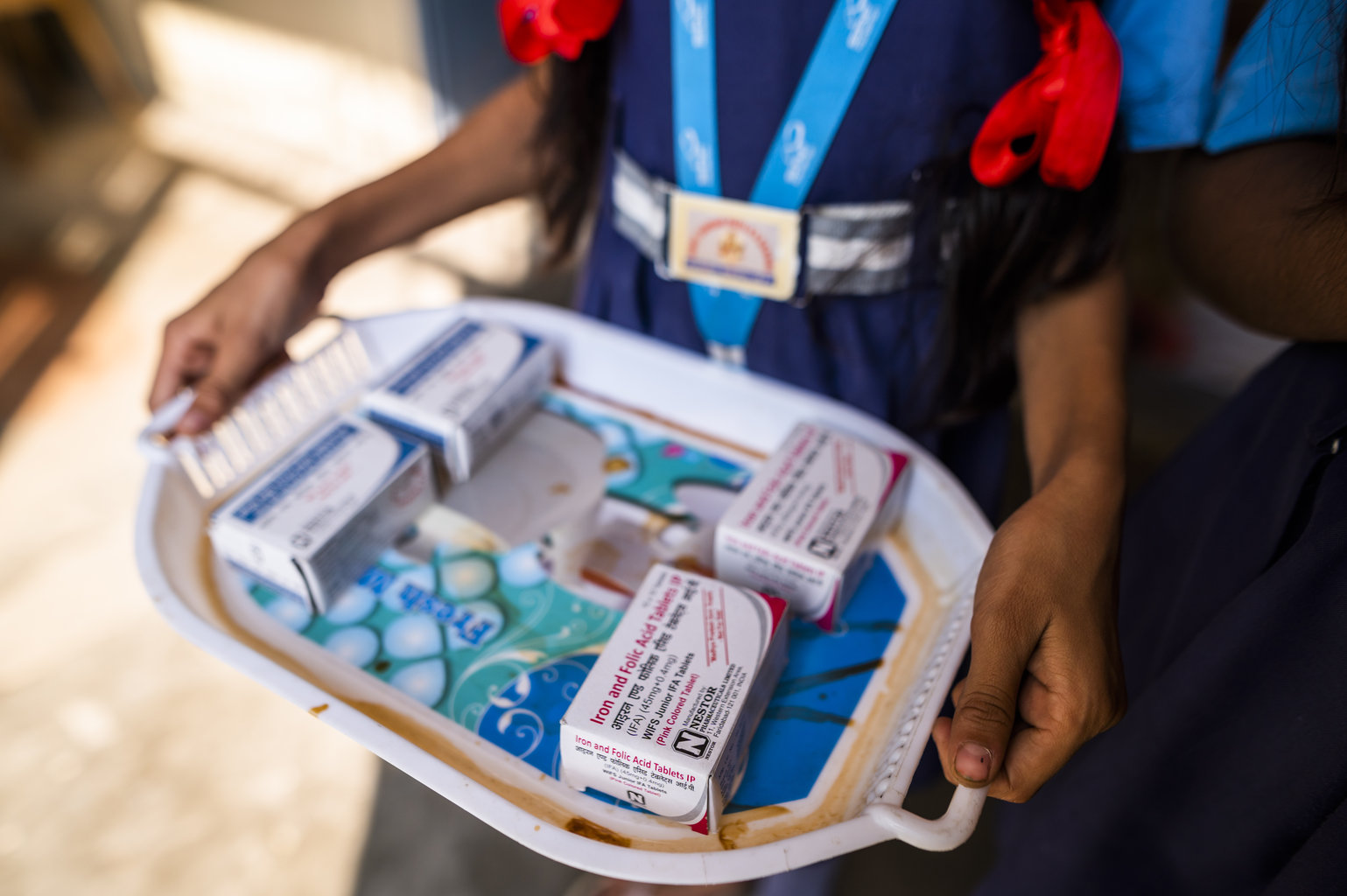
Nutrition International supports the government to ensure the Bal-Sabha has access to the iron and folic acid tablets and periodically administers haemoglobin testing to the students. The supplements with the pink labels contain 45mg of elemental iron and are administered to primary school students, while the blue labels, containing 60mg of elemental iron, are reserved for secondary school students. At least twice a month, a team of implementing partners visit the middle school to discuss the program’s challenges and successes with the teachers and headmistress. During these visits, the team also meets directly with the students to provide nutrition education and emphasize the importance of micronutrients in their diets.
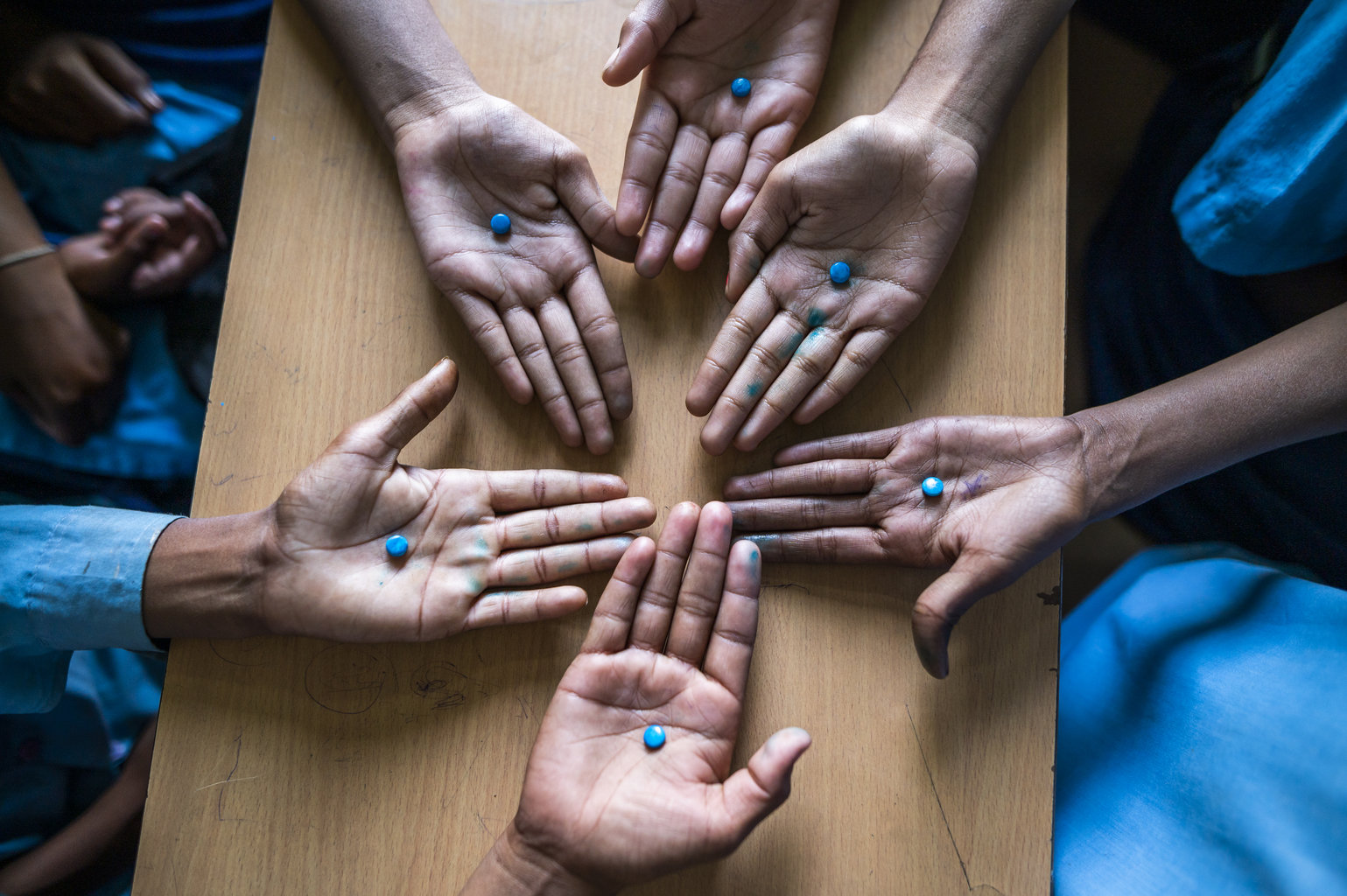
To increase uptake and ensure all students feel comfortable taking the WIFAS supplements, Pratigya and Ayushi use their platform to explain the benefits of supplementation to their peers. “The benefits of these tablets include decreased possibility of anaemia, no weariness, maintaining excellent health, concentrating better in studies and aiding in learning,” Ayushi explains. They also touch on the importance of overall health and nutrition, including dietary intake. “We both encourage kids to eat nutrient-dense foods like spinach, moringa, coriander and other leafy greens,” Pratigya adds.
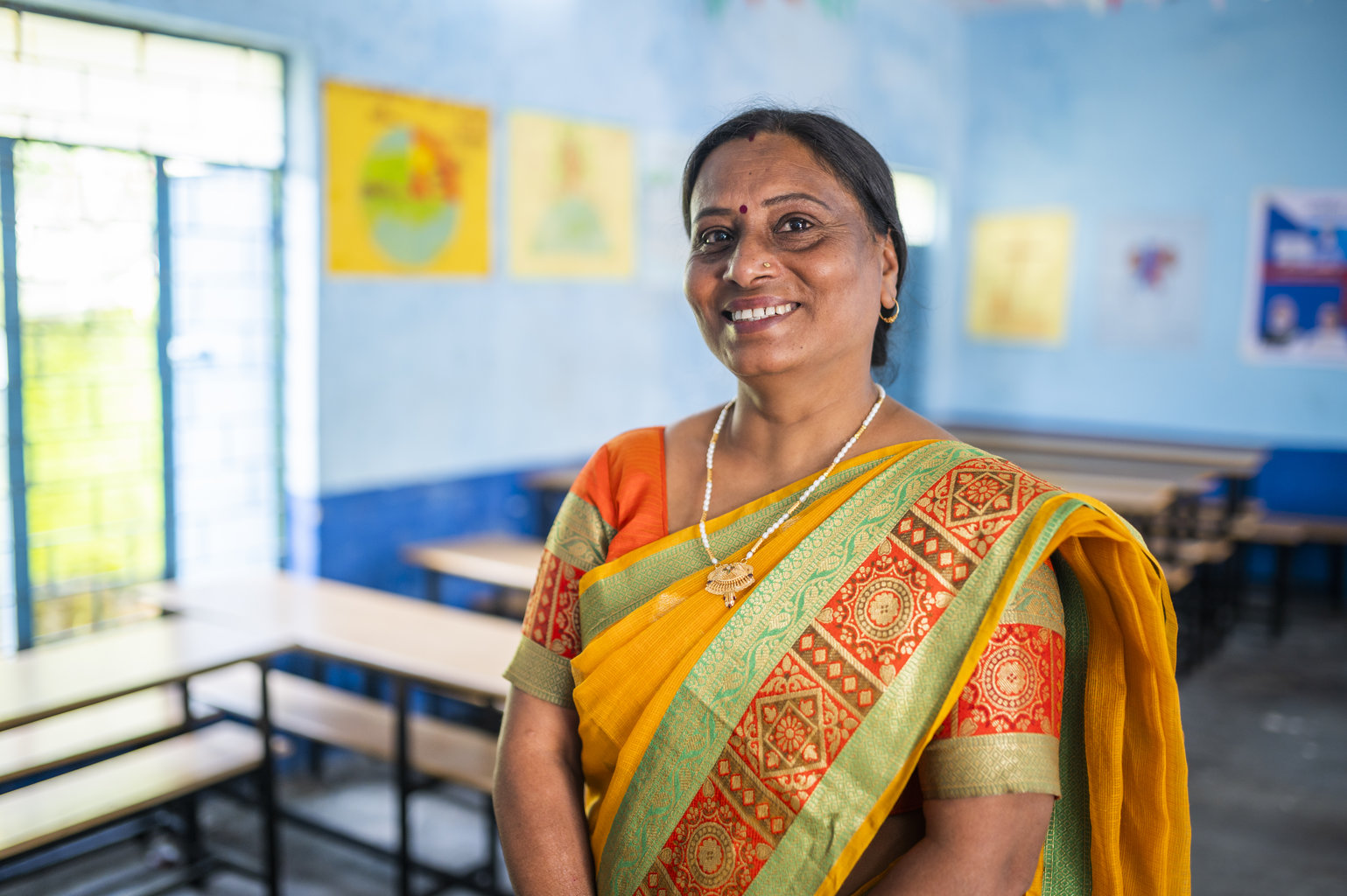
Abhilasha Parihar is a primary teacher at the middle school who is committed to supporting the Bal-Sabha and empowering her students to take ownership of their own health. Parihar not only supervises and oversees all the Bal-Sabha’s activities, including the weekly distribution of iron and folic acid supplementation, but along with the headmistress and other teachers, is responsible for the formation of the student cabinet. “We talk about how to use the child cabinet to get children to participate in this campaign based on their interests,” she says. “We carefully examine each class before assembling a cabinet and assigning each department to a student based on their level of interest.”
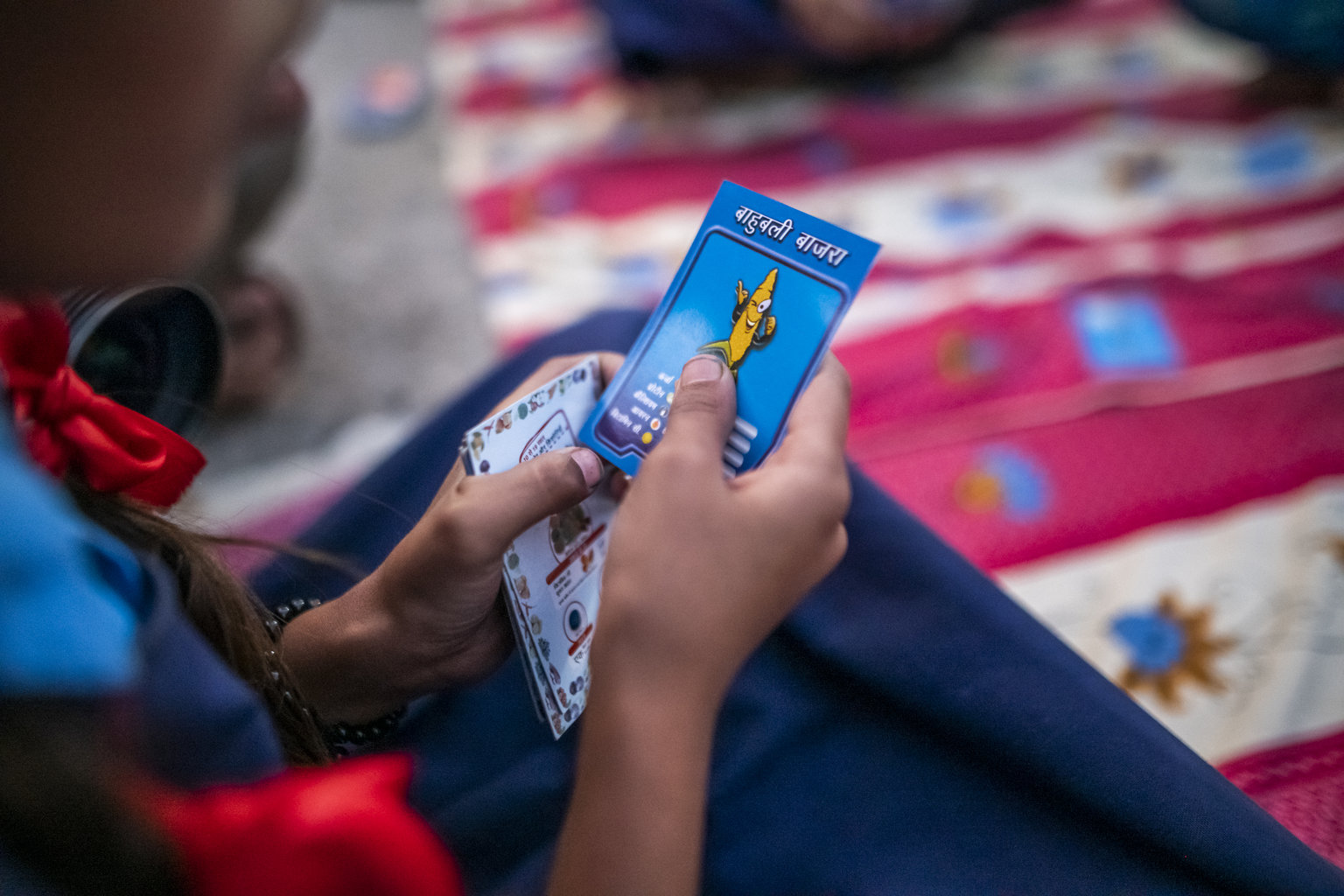
To increase engagement and nutrition awareness among adolescents, Nutrition International has adapted two popular games played by children across India for use in the adolescent nutrition programs it supports. Trump Cards (pictured above) are a deck of 34 cards that aim to educate the player on different food items and their corresponding nutritional value. Usually played in groups, one player will quote the nutrient with the highest value, while other players attempt to play a card that can ‘trump’ this value – the player with the highest value wins the round and collects all the cards.
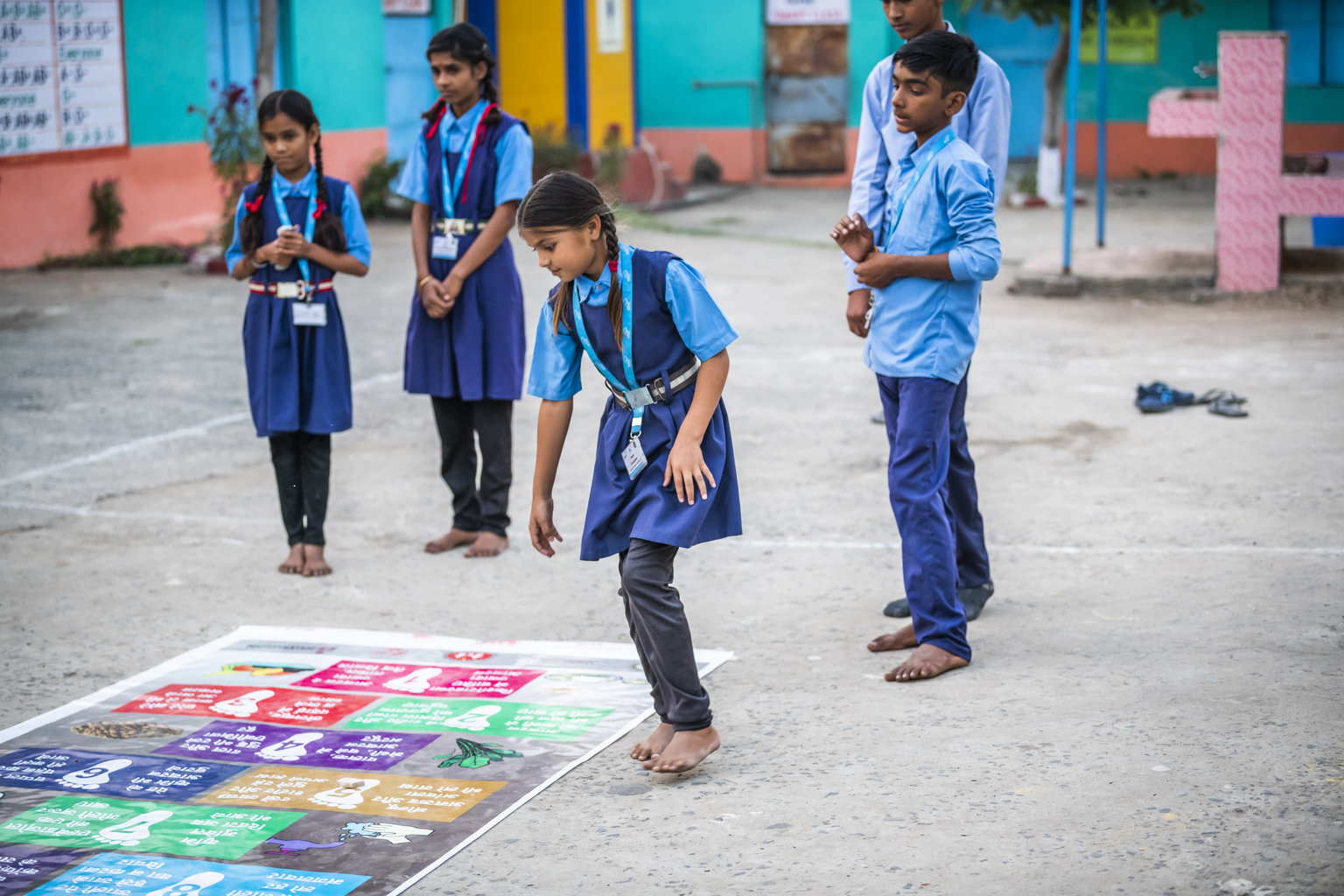
The Bal-Sabha members lead a game of Stapoo in the schoolyard. This outdoor game, not too dissimilar to hopscotch, is played by drawing a grid on the ground containing numbered squares in a sequence in which players are to hop. Nutrition International expanded on this by having players read key nutrition-related messages without losing balance each time they hop over a number. Both games are used across government schools in Madhya Pradesh to engage adolescents in the critical topic of nutrition education and have been made available on the Anaemia Mukt Bharat (Anaemia Free India) program of the Government of India for any stakeholder to use.
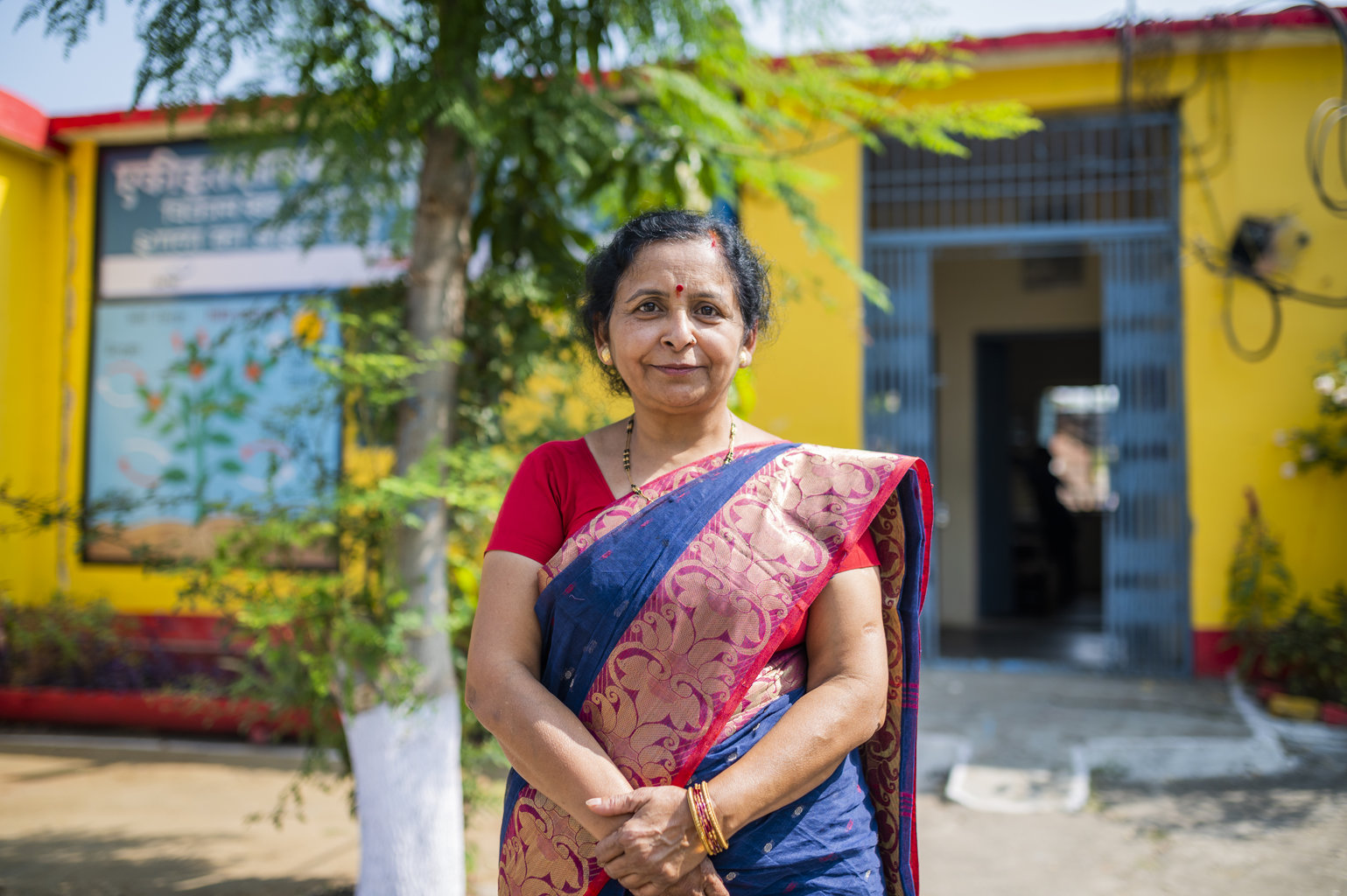
While the concept of a student cabinet initially came from the government, some schools built upon the idea by creating more robust roles and activities for students to foster greater participation and a sense of responsibility. Swati Devasthali, Pratigya and Ayushi’s principal, believes that the skills acquired by being part of the Bal-Sabha extend far beyond adolescent years and impact development overall. “My concept was that if children were encouraged to learn to take responsibility and participate in such activities, they would not only grow physically and cognitively, but they would also take this learning as a life lesson,” she explains.
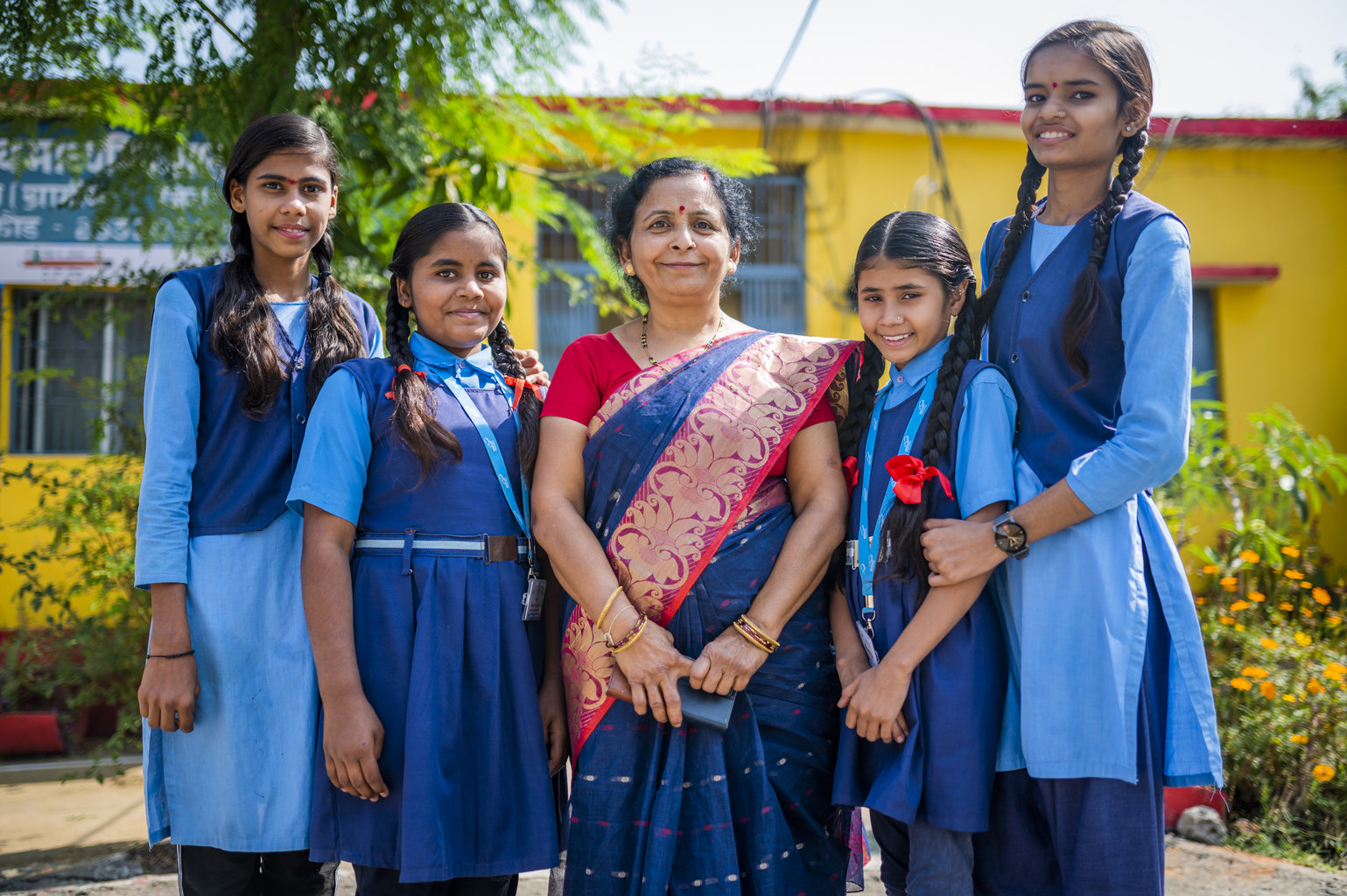
After seeing how successful the implementation of the Bal-Sabha has been in her own school and how it’s empowered her students to proactively take charge of their own health and nutrition, Devasthali hopes to increase awareness of the cabinet among other schools in the area so they too can reap the benefits. “Today’s children are the future of our country,” she says. “My ultimate objective is to make other schools in the area aware of it and have them implement it. I want them to activate the child cabinet so that every child may develop.”